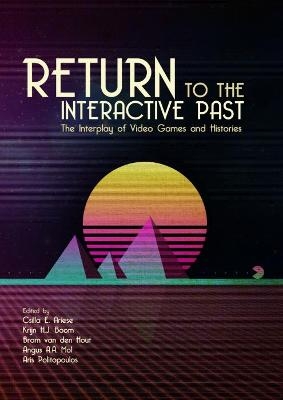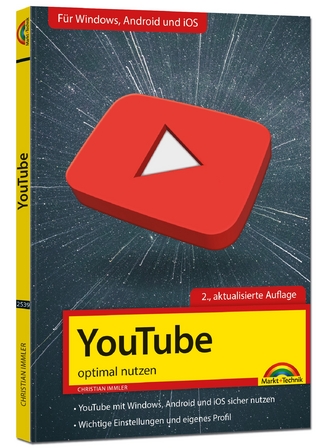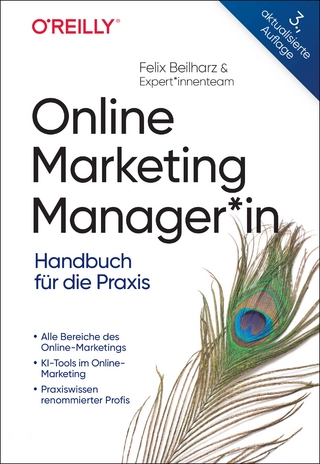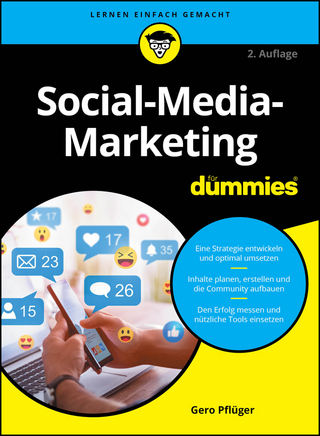
Return to the Interactive Past
Sidestone Press (Verlag)
978-90-8890-913-9 (ISBN)
A defining fixture of our contemporary world, video games offer a rich spectrum of engagements with the past. Beyond a source of entertainment, video games are cultural expressions that support and influence social interactions. Games educate, bring enjoyment, and encourage reflection. They are intricate achievements of coding and creative works of art. Histories, ranging from the personal to the global, are reinterpreted and retold for broad audiences in playful, digital experiences. The medium also magnifies our already complicated and confrontational relation with the past, for instance through its overreliance on violent and discriminatory game mechanics. This book continues an interdisciplinary conversation on game development and play, working towards a better understanding of how we represent and experience the past in the present.
Return to the Interactive Past offers a new collection of engaging writings by game creators, historians, computer scientists, archaeologists, and others. It shows us the thoughtful processes developers go through when they design games, as well as the complex ways in which players interact with games. Building on the themes explored in the book The Interactive Past (2017), the authors go back to the past to raise new issues. How can you sensitively and evocatively use veterans’ voices to make a video game that is not about combat? How can the development of an old video game be reconstructed on the basis of its code and historic hardware limitations? Could hacking be a way to decolonize games and counter harmful stereotypes? When archaeologists study games, what kinds of maps do they draw for their digital fieldwork? And in which ways could we teach history through playing games and game-making?
Csilla E. Ariese-Vandemeulebroucke completed her PhD as part of the ERC-Synergy project NEXUS1492 at the Faculty of Archaeology, Leiden University. Her dissertation explores Caribbean museums and the practices and processes through which they engage with a diversity of communities. She is continuing as a researcher within the same project and faculty, now working to catalogue Caribbean collections in European museums. Krijn Hendrikus Johannes Boom completed his PhD as part of the European NEARCH Project at the Faculty of Archaeology, Leiden University. Krijn works as a Project Manager Blended Learning at the Faculty of Science, University of Amsterdam and is Co-Founder of the VALUE foundation. Angus Mol is a post-doctoral researcher. He works on the theory and methodology of past and present socio-material networks, ranging from entanglements at Çatalhöyük and cultural encounters in the Caribbean, to the materiality of online multiplayer games. His writings have appeared at Sidestone Press, in a number of international journals, and, as Dr. Random, on www.valueproject.nl. Bram van den Hout is a junior researcher at the International Institute of Social History and his fields of interest are Slavery, Piracy, and Violence in the Dutch East Indian Company. Through the VALUE Foundation he also explores the intersection between video games and history. He co-authored the book Testimonies of Enslavement: Sources on Slavery from the Indian Ocean World and three articles (set for publication in 2020) all on slavery and the slave trade within and around the city of Cochin on the Southwest Indian coast, at the time controlled by the Dutch East India Company. Aris is a PhD candidate at Leiden University, Faculty of Archaeology. Aside from video games, he is passionate about the Near East and more specifically the Assyrian Empire and its capital cities. He investigates the reasons for the construction of new capitals, as well as their function within the imperial system. He is also interested in all forms of storytelling and narratives – from Dungeons and Dragons to history-telling.
1. Introduction
Angus A.A. Mol, Aris Politopoulos, Csilla E. Ariese, Bram van den Hout & Krijn H.J. Boom
Part I: Narratives in and of Video Games
2. The Role of Historical Research and ‘Historical Accuracy’ in Where the Water Tastes Like Wine
Johnnemann Nordhagen
3. Their Memory: Exploring Veterans’ Voices
Iain Donald, Emma Houghton & Kenneth Scott-Brown
4. The Desolation of Vixens
John Aycock & Hayden Kroepfl
5. The Final Word? How Fans of The Elder Scrolls Record, Archive, and Interpret the Battle of Red Mountain
Dennis Jansen
Part II: Representations and Intersectionality in Video Games
6. Personal and Social Recent History in Fragments of Him: Defining and Exploring ‘Immersion’ in Video Games
Mata Haggis-Burridge
7. ‘Transcending History and the World’: Ancient Greece and Rome in Versus Fighting Video Games
Dunstan Lowe
8. Synthetic Spaces and Indigenous Identity: Decolonizing Video Games and Reclaiming Representation
Ashlee Bird
9. Fork in the Road: Consuming and Producing Video Game Cartographies
Florence Smith Nicholls
Part III: Historical Research and Learning through Video Games
10. Scholarly History through Digital Games: Pedagogical Practice as Research Method
Robert Houghton
11. Life Was Really Hard! Designing and Using Digital Games to Explore Medieval Life in Primary Schools
Juan Hiriart
12. Gaming the Past: Video Games and Historical Literacy in the College Classroom
Jeffrey Lawler & Sean Smith
13. Of Ecosystems and Landscapes: An Essay on Grasping Themes of Environmental History in Video Games
George L. Vlachos
14. Stories Around the Campfire
The Interactive Past Community (Curated by Csilla E. Ariese)
| Erscheinungsdatum | 22.12.2021 |
|---|---|
| Zusatzinfo | 31fc/3bw |
| Verlagsort | Leiden |
| Sprache | englisch |
| Maße | 178 x 254 mm |
| Themenwelt | Geisteswissenschaften ► Archäologie |
| Geisteswissenschaften ► Geschichte | |
| Mathematik / Informatik ► Informatik ► Web / Internet | |
| ISBN-10 | 90-8890-913-X / 908890913X |
| ISBN-13 | 978-90-8890-913-9 / 9789088909139 |
| Zustand | Neuware |
| Haben Sie eine Frage zum Produkt? |
aus dem Bereich


